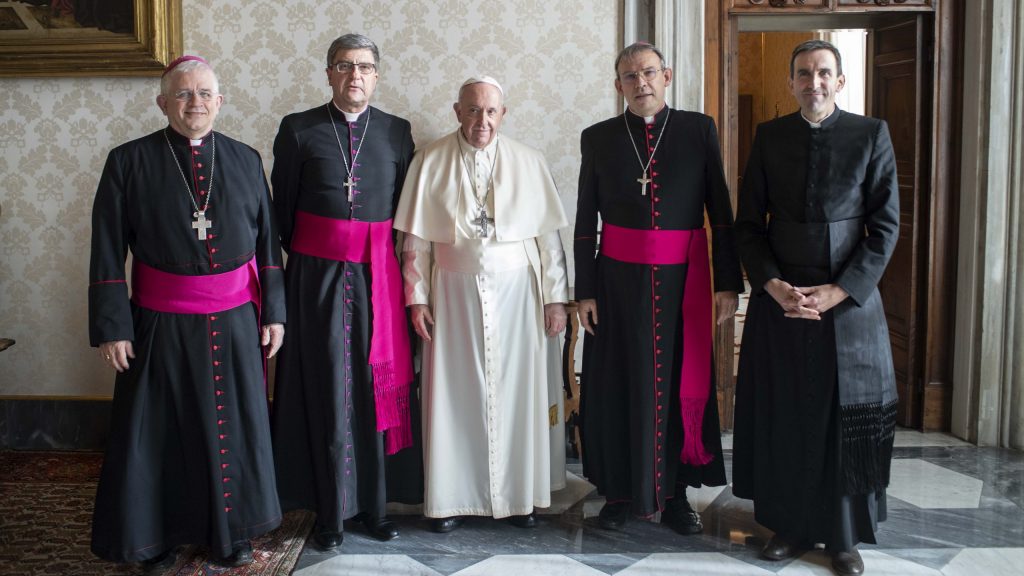After a private meeting with Pope Francis, the officers of the French bishops' conference said the pope encouraged them to continue responding together to a recent independent report on sexual abuse in the church since the 1950s.
"The pope underlined the dignity of our attitude and our way of considering the report" of the 21-member Independent Commission on Sexual Abuse in the Catholic Church, "and he encouraged us to continue to do so in a synodal way," said Archbishop Éric de Moulins-Beaufort of Reims, president of the French bishops' conference.
The archbishop and other officers of the bishops' conference met with reporters Dec. 13 after their meeting with Pope Francis. They said Pope Francis has agreed to meet with members of the independent commission, although a date for the meeting has not been set.
Like the leaders of other large bishops' conferences, the French prelates meet annually with the pope, but this year there were two main topics: the release of the report estimating that since the 1950s as many 330,000 children have been abused in France by priests, religious or church employees; and the resignation Dec. 2 of Archbishop Michel Aupetit of Paris.
Responding to the report, at their November meeting the bishops adopted 26 measures, including approval of a new national independent unit for recognition and reparation; a commitment to sell diocesan properties and assets to finance compensation payments; the establishment of a national canonical criminal court and external audit for victim support units; and the designation of the third Sunday of Lent as a day of prayer for victims of "violence, sexual assault and abuse of power and conscience within the church."
Archbishop Moulins-Beaufort told reporters in Rome that the bishops had experienced a "conversion" during their meeting in Lourdes, and Bishop Olivier Leborgne of Arras, conference vice president, said it was a "spiritual venture" that led the bishops to put listening to and caring for victims at the center of their approach and recognizing the church in France has an institutional responsibility for the failures, rather than blaming just the individuals who committed the abuse.
As for the case of Archbishop Aupetit, who submitted his resignation after public accusations of bad management and an improper -- or at least "ambiguous" -- relationship with a woman, Archbishop Moulins-Beaufort said, "the pope confided to us his sadness at having had to take this decision," considering that "the climate that had been created no longer allowed him to govern."
The remark echoed Pope Francis' comments to reporters during an inflight news conference Dec. 6 when he said nothing had been proven about the archbishop's behavior, but the "gossip" surrounding the case had made it impossible for him to continue running the archdiocese.

